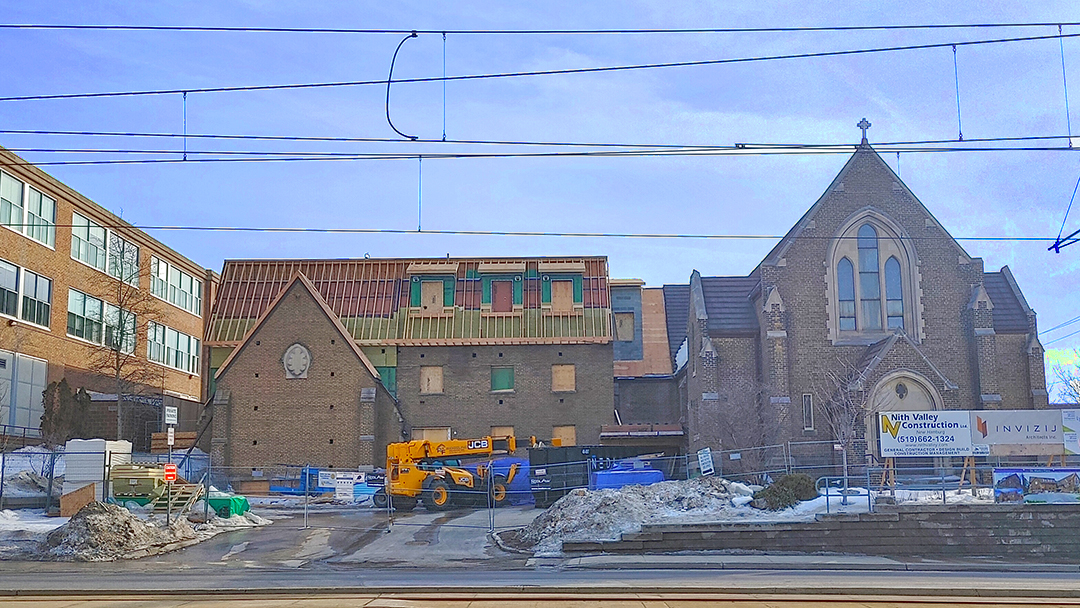The groundwork for a major conversation between local governments, faith-based groups, and community housing players will be laid on October 25th at ONPHA’s pre-conference Building for Belonging.
Organized by the Community Housing Transformation Centre in partnership with Trinity Centres Foundation and the Federation of Canadian Municipalities, the roundtable aims to explore the potential of a large-scale partnership that will link the three sectors in a unified mission.
Historically speaking, faith groups have played a central role in defining how our cities and towns have developed. Today, the redeployment of their real estate to the community housing sector has the potential to help meet Canada’s affordable housing needs. However, this result requires further strategizing and collaboration.
Through this conversation, the three partners propose to establish agreements and guidelines defining the structures that will enable the redeployment of faith-based real estate. Municipalities, faith-based groups, and community housing groups share the responsibility of finding ways to foster collaboration that respects the missions of each in order to build an effective partnership.
Assets and needs that call for collaboration
Research carried out by Canada’s National Trust in 2020 showed that a third of Canada’s 27,000 religious buildings – over 9,000 – could close permanently within the next decade for lack of resources to maintain them. The pandemic has further worsened the situation, causing a significant drop in income for faith groups and accelerating permanent closures.
It is estimated that around 4,000 of these buildings will be repurposed or sold in the near future. On the one hand, transforming these buildings into community housing projects could provide relief for 100,000 of the 500,000 households living in inadequate housing. On the other hand, the capital generated by these sales could enable faith-based groups to maintain and preserve some of their remaining properties.
These needs and opportunities provide fertile ground for fruitful partnerships between the community housing sector, municipalities, and faith-based groups. A few examples illustrate this point, such as an Indwell project launched as part of the Canada-Ontario Community Housing Initiative, which aimed to transform an empty church in Kitchener into affordable housing. More than 40 units are taking shape in St Mark’s Lutheran Church. The City of Ottawa, meanwhile, is evaluating the purchase of a former Catholic residence and seminary with the intention of transforming the property into supportive housing.
However, these projects are often the result of isolated initiatives, rather than systematic planning. The potential, Canada wide, is much greater. The key now is to frame the dialogue, to create a space for sharing successes, failures, resources, and challenges in order to intensify and accelerate collaboration.
The project is not without its challenges
We are racing against time, as the divestment process for the 4,000 buildings must be completed by 2026. At the same time, community housing projects traditionally take more than five years before a financial commitment is made.
The question of funding is also essential. Faith-based groups, the community housing sector, and municipalities alike are struggling with limited funds, despite the value of their assets. Transforming these buildings into housing and community spaces requires, on the one hand, substantial financial transformation, and on the other, careful consideration of the individual needs of each group.
Yet, despite the challenges, the ability to manage these projects and raise the necessary funds exists. Strategic asset management on schedule is also possible. We need to agree on decisions that would allow buildings to be dedicated to community purposes.
If nothing is done, the speculative market will take control, leaving faith-based groups with fewer resources for their mission and further marginalizing the community housing sector. On the other hand, a cohesive approach could encourage faith-based asset managers and community housing developers to embark on a shared journey that will be for the collective good.
Join the conversation at the ONPHA 2023 pre-conference
Join the national conversation Unlocking Faith-Based Real Estate for Community Housing. Leaders from municipalities, faith-based and community housing sectors will present and discuss their ideas on what needs to be done to build a successful and sustainable partnership. You’ll be invited to express your views in the workshops to feed the debates.
Date: October 25, 2023, from 2:30 p.m. to 6:30 p.m., Eastern Time
Location: Sheraton Centre Toronto Hotel, 123 Queen Street, Hall E



